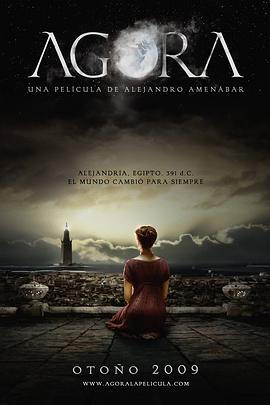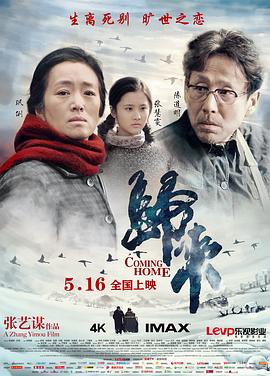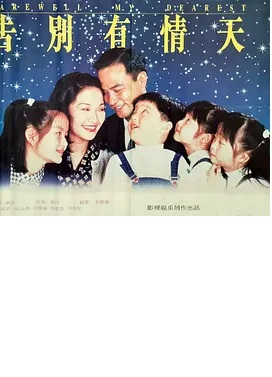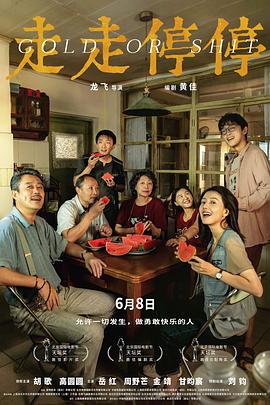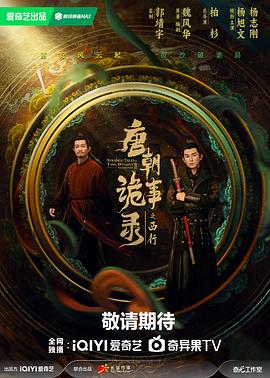剧情:
Somewhere in the remote region, the war ends. In the midst of ruined cities and houses in the streets, in rural hamlets, everywhere where people still live, are children who have lost their homes and parents. Abandoned, hungry, and in rags, defenseless and humiliated, they wander through the world. Hunger drives them. Little streams of orphans merge into a river which rushes forward and submerges everything in its path. The children do not know any feeling; they know only the world of their enemies. They fight, steal, struggle for a mouthful of food, and violence is merely a means to get it. A gang led by Cahoun finds a refuge in an abandoned castle and encounters an old composer who has voluntarily retired into solitude from a world of hatred, treason, and crime. How can they find a common ground, how can they become mutual friends The castle becomes their hiding place but possibly it will also be their first home which they may organize and must defend. But even for this, the price will be very high. To this simple story, the journalist, writer, poet, scriptwriter, movie director, and film theoretician Béla Balázs applied many years of experience. He and the director Géza Radványi created a work which opened a new postwar chapter in Hungarian film. Surprisingly, this film has not lost any of its impact over the years, especially on a profound philosophical level. That is to say, it is not merely a movie about war; it is not important in what location and in what period of time it takes place. It is a story outside of time about the joyless fate of children who pay dearly for the cruel war games of adults. At the time it was premiered, the movie was enthusiastically received by the critics. The main roles were taken by streetwise boys of a children's group who created their roles improvisationally in close contact with a few professional actors, and in the children's acting their own fresh experience of war's turmoil appears to be reflected. At the same time, their performance fits admirably into the mosaic of a very complex movie language. Balázs's influence revealed itself, above all, in the introductory sequences an air raid on an amusement park, seen in a montage of dramatic situations evoking the last spasms of war, where, undoubtedly, we discern the influence of classical Soviet cinematography. Shooting, the boy's escape, the locomotive's wheels, the shadows of soldiers with submachine guns, the sound of a whistle—the images are linked together in abrupt sequences in which varying shots and expressive sharp sounds are emphasized. A perfectly planned screenplay avoided all elements of sentimentality, time-worn stereotypes of wronged children, romanticism and cheap simplification. The authors succeeded in bridging the perilous dramatic abyss of the metamorphosis of a children's community. Their telling of the story (the scene of pillaging, the assault on the castle, etc) independently introduced some neorealist elements which, at that time, were being propagated in Italy by De Sica, Rossellini, and other film artists. The rebukes of contemporary critics, who called attention to formalism for its own sake have been forgotten. The masterly art of cameraman Barnabás Hegyi gives vitality to the poetic images. His angle shots of the children, his composition of scenes in the castle interior, are a living document of the times, and underline the atmosphere and the characters of the protagonists. The success of the picture was also enhanced by the musical art of composer Dénes Buday who, in tense situations, inserted the theme of the Marseilaise into the movie's structure, as a motive of community unification, as an expression of friendship and the possibility of understanding. Valahol Europaban is the first significant postwar Hungarian film. It originated in a relaxed atmosphere, replete with joy and euphoria, and it includes these elements in order to demonstrate the strength of humanism, tolerance, and friendship. It represents a general condemnation of war anywhere in the world, in any form.
收起
【已完结】
官网同步更新,若有延迟请稍作休息再看看
官网同步更新,若有延迟请稍作休息再看看
【已完结】
官网同步更新,若有延迟请稍作休息再看看
官网同步更新,若有延迟请稍作休息再看看
相关影片
2025
剧情片
西班牙 / 意大利
胡利奥·佩纳 亚历桑德罗·博尔吉 José Manuel Poga 朱利安·帕斯查尔 罗伯托·阿拉莫 米古尔·雷兰 Norberto Morán 路易斯·卡叶赫 César Sarachu Rafa Duna 费尔南多·特赫罗 阿尔伯特·萨拉扎尔 Juanma Muniagurria Matamba Joaquim Alex Mandon Rey Luna Berroa 赛义德·埃尔·穆登 Thomas King Khaled Kou
A historical drama about the years the writer Miguel de Cervantes spent in prison, the famous author of Don Quijote de la Mancha.
更新至高清
2025
剧情片
日本
更新至高清
2009
剧情片
中国大陆
更新20240819期
2009
剧情片
西班牙
HD中字
2014
剧情片
大陆
HD国语
1995
剧情片
香港
HD中字
2026
剧情片
日本
更新至高清
2025
剧情片
美国
一名摄影师在得知自己童年时期目击到的不明飞行物又再次出现时,她毅然决然的选择了去踏上寻找不明飞行物的路程。但令她万万没想到的是,一些来路不明的客人也开始参与其中,并且一直试图破坏她的调查计划。
更新至高清
2024
剧情片
加拿大
在一次车祸导致米娅完全失忆后,由她深爱的丈夫和女儿照顾,米娅开始回忆起自己的第二个女儿,而其他人都不相信她的存在。
更新至高清
2025
剧情片
美国 / 法国 / 拉脱维亚
伊莫琴·普茨 索拉·伯奇 詹姆斯·贝鲁什 汤姆·斯图里奇 查理·卡里克 杰瑞米·安·琼斯 厄尔·凯夫 苏珊娜·弗拉德 米迦勒·埃普 金·戈顿 亚历山大·约翰逊 埃斯梅·艾伦 安娜·维托夫斯基 安东·利特维诺夫 阿丽娜·利特维诺娃 多米尼克·加布里埃尔·罗塞蒂 哈尔·韦弗 埃莉诺·哈恩 彼得·伦德尔 玛丽娜·斯尼加
莉迪娅从小在父亲的暴力阴影下长大,游泳是她唯一的逃避方式。她凭借奖学金进入大学,却在成年后陷入毒瘾、混乱的性关系和失去孩子的痛苦中。她的人生如同水流,时而湍急、时而沉寂,无法掌控方向。在最深的低谷中,莉迪娅开始写作。文字成为她的呼吸,也成为她重新定义自己的方式。她不再只是受害者,而是讲述者,是创造者。通过回望过去,她一点点拼凑出破碎的自我,也在写作中找到了勇气。 影片改编自莉迪亚·尤克纳维奇所著回忆录。
更新至高清
2025
剧情片
美国 / 芬兰
提莫西·查拉梅 格温妮斯·帕特洛 敖德萨·阿锡安 凯文·奥利里 泰勒·奥康马 阿贝尔·费拉拉 法兰·德瑞雪 桑德拉·伯恩哈德 乔什·伯恩 亚历山大·布里尼策 丹尼斯奎里根 泰勒·戴蒙德 盖佐·罗赫里格 弗朗西斯·杜莫里耶 凯文·埃克尔斯顿 约里斯·斯图克 克里斯蒂安·伊格弗丹斯 布莱克·吉奥维蒂 斯宾塞·格兰斯 托雷·希尔 罗伯特·帕丁森
鞋店店员马蒂·毛瑟(提莫西·查拉梅 饰)怀揣拿下乒乓球世界冠军的疯狂梦想,为了证明自己,他不惜横冲直撞、放下尊严。当他如愿踏上对决的赛场,内心那股誓要登顶夺冠的渴望,再也按捺不住。他能否用球拍击碎所有嘲讽与质疑?这个偏执到骨子里的狂人,又会在登顶的荣光之后,窥见怎样的人生真相?
更新至高清
2025
剧情片
中国大陆
更新至高清
2024
剧情片
墨西哥
更新至高清
正在热播
更多
2022
国产动漫
大陆
独家推荐
更新至第140集
2024
剧情片
中国大陆
独家推荐
HD
2024
国产剧
中国大陆,新加坡
独家推荐
全40集 彩蛋 花絮




